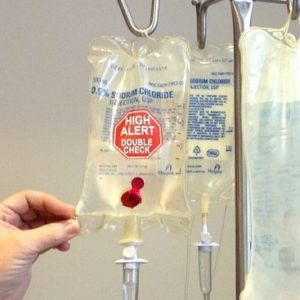November is Gastric Cancer Awareness Month.
So what do you know about gastric cancer?
Stomach cancer, or gastric cancer, is a cancer that manifests in the stomach lining. It often begins on the stomach wall’s innermost layer and spreads outward. There are different types of this cancer, including lymphoma, stromal tumors, carcinoid tumors, and adenocarcinoma; the latter is the most common form.
66% of people with this cancer are over 65 years old. It tends to affect men more than women. This cancer is more prevalent in lesser-developed countries but considered rare in the United States. Risk factors include H. pylori infection, GERD, obesity, smoking, old age, a high sodium and low fruit/vegetable diet, and a family history of stomach cancer.
Symptoms can include chronic indigestion, chronic heartburn, persistent nausea and vomiting, stomach pain, feeling bloated after eating, losing weight without trying, bloody stool, jaundice, difficulty swallowing, and fatigue. Unfortunately, many people don’t show symptoms until early stages.
Why Gastric Cancer Awareness is Necessary
Now that you know all about gastric cancer, you might be wondering: Well, why?
Here’s the thing: awareness is important. Crucial, even. Many times, people may not know what the symptoms look like, what their risk factors are, or whether they need to speak with their doctors. Since symptoms appear in later stages, it can be more difficult to diagnose – and that means treatment begins later. By raising awareness, we can advance research, support those affected, and advocate for wider education.
Organizations like the American Association for Cancer Research (AACR) are already supporting gastric cancer research. In their article on Gastric Cancer Awareness Month, the AACR team explains that the organization has funded research into the genetic ancestry and DNA methylome in gastric cancer among Latinos, radiation-induced inflammasome activation, and the unique biology of ILC.
While you may not be able to get involved with the research side of things, here are some other ways that you can contribute to awareness this month:
- Turn to social media. Whether you’re an advocate, a patient, a family member, or someone looking to learn, continue finding stories from people who have lived with gastric cancer on social media. Use hashtags like #GastricCancer and #GastricCancerAwarenessMonth to share, search for, and amplify stories.
- Donate. Medical research can be expensive. Donations from people like you can support necessary studies and drive progress against cancer. The AACR offers multiple donation avenues.
- Learn. Consider heading to the AACR or Gastric Cancer Foundation websites to better educate yourself and your community about gastric cancer and its impacts.
- Contact the media. If you want to raise gastric cancer awareness locally, reach out to your local radio or television stations. Ask them to cover someone in the community who has gastric cancer, or to consider doing an information session on the show.






